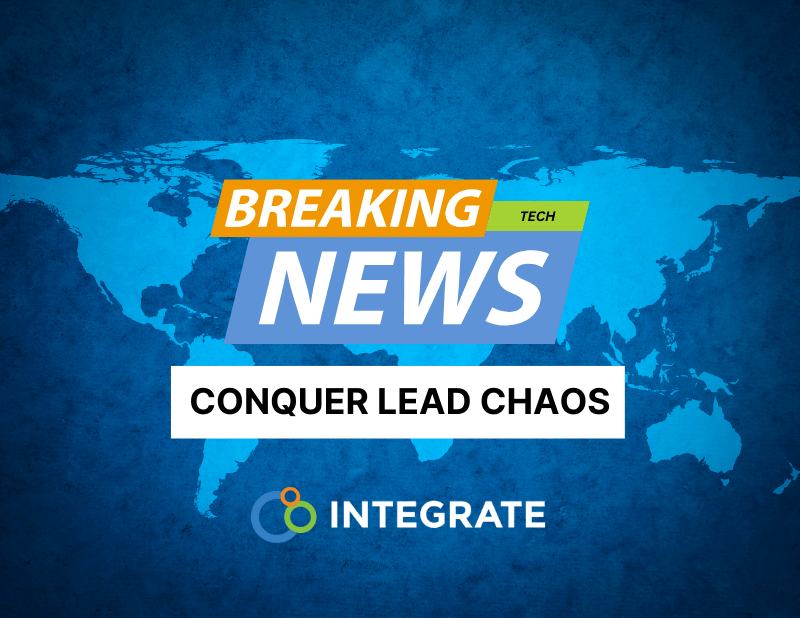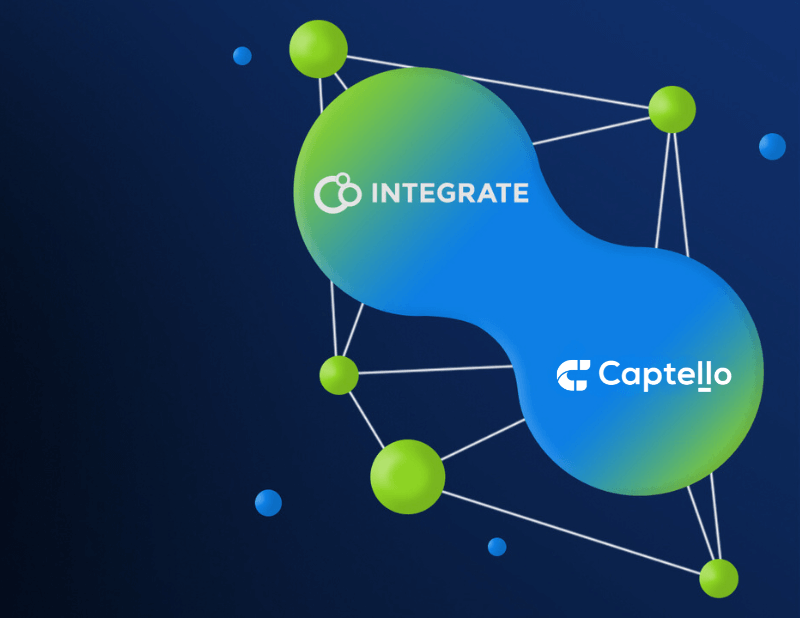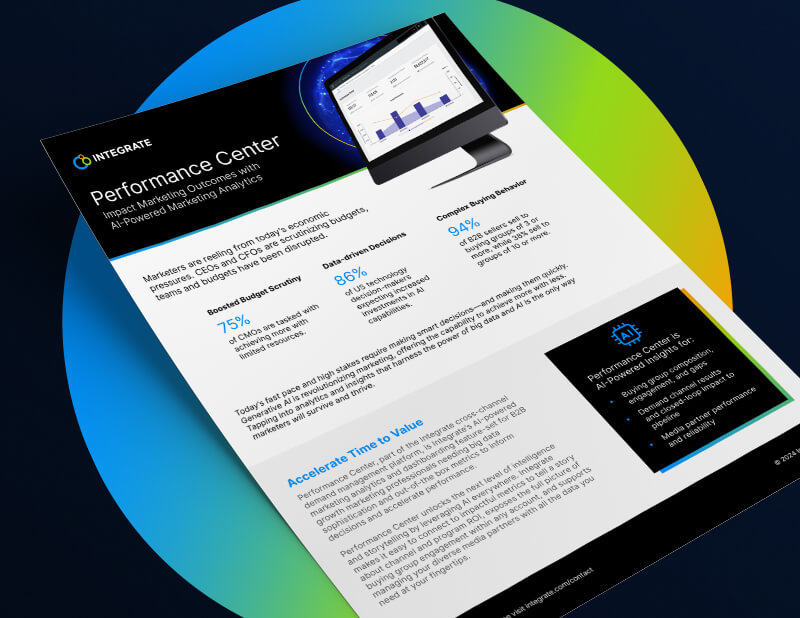Lead Management System: Optimizing Lead Capture and Marketing Efficiency
The business landscape in 2025 demands more from companies managing B2B leads. Gone are the days when lead management was limited to capturing and routing leads. Today, a lead management system represents the convergence of two critical capabilities: traditional lead management processes for capturing, nurturing, and processing leads and robust data governance to ensure quality, compliance, and usability.
It’s important to clarify that a lead management system is not just software. It is a strategic framework that incorporates tools and platforms to complement your overall lead management strategy. The lead management software enables the system but is just one part of a larger ecosystem.
The Challenges of Lead Management in 2025
As businesses adopt more sophisticated marketing and sales strategies, the sheer number of channels available to capture leads and the increasing complexity of data management have created new obstacles. The need to unify fragmented systems, ensure compliance with stringent regulations, and maintain high-quality data has become more critical than ever. Without addressing these challenges, businesses risk inefficiencies, missed opportunities, and lost revenue.
- Data Fragmentation: Disconnected systems result in scattered data, making it difficult to achieve a unified view of leads. This leads to inefficiencies in both marketing and sales processes.
- Regulatory Compliance: Data privacy laws like GDPR and CCPA are becoming stricter, making compliance management a resource-intensive challenge.
- Data Quality: Poor data quality undermines lead management efforts, decreasing conversion rates and operational efficiency.
- Operational Bottlenecks: Manual processes slow down workflows, introduce errors, and limit scalability.
- Lack of Real-Time Insights: Delays in accessing actionable insights hinder decision-making and campaign optimization.
Trends Shaping Lead Management Systems in 2025
Building on the challenges faced in managing B2B leads, the lead management and data governance landscape is rapidly evolving to address these complexities. This transformation is driven by several key trends projected for 2025:
- Data-Driven Marketing: Companies increasingly rely on AI-powered tools to deliver insights and optimize strategies.
- Increased Compliance Focus: Organizations prioritize robust data governance frameworks to mitigate regulatory risks.
- Automation and AI: Workflow automation and AI-driven lead segmentation are now essential for maintaining operational efficiency and competitiveness.
These trends underscore the importance of integrating advanced technologies and compliance measures into lead management systems to stay competitive in the evolving B2B marketing landscape.
Defining a Lead Management System in 2025
A lead management system in 2025 is not merely a set of tools—it is a strategic framework where well-defined processes are mapped to supporting software to create an integrated approach to managing leads.
At its core, a lead management system combines two essential pillars:
Lead Management: Streamlining lead capture, processing, nurturing, and insights. These processes are designed to create seamless handoffs between marketing and sales teams, reducing friction and increasing lead conversion rates. Marketing needs addressed by lead management include:
- Lead Scoring: Assigning scores to leads based on their engagement and fit with the ideal customer profile, helping prioritize leads for follow-up.
- Segmentation: Enabling detailed segmentation of leads based on various attributes and behaviors for targeted marketing efforts.
- Advanced Analytics and Reporting: Providing detailed insights and performance metrics on lead behavior, quality, and engagement to facilitate data-driven decision-making.
- Lead Routing: Routing leads to the appropriate sales representatives based on predefined criteria such as geographic location, industry, or lead score.
- Lead Tracking: Monitoring the activities and interactions of leads across different touchpoints.
- Lead Nurturing: Automated workflows and communication strategies to engage leads with personalized content and campaigns over time.
- Emphasis on Buying Groups: Recognizing and grouping multiple leads from the same organization to understand the collective behavior and enhance targeting strategies.
- Automated Workflows: Automating repetitive tasks and processes to improve operational efficiency and free up time for strategic initiatives.
- Real-Time Data Processing: Processing data as it is received to provide up-to-date information and insights.
- Customizable Dashboards: Providing customizable interfaces that allow users to visualize and analyze data in ways that meet their specific needs.
Data Governance: Beyond lead processing, data governance ensures that all lead data adheres to quality, integrity, and compliance standards. Effective data governance minimizes risks, maintains customer trust, and ensures that lead data remains actionable and reliable across the organization.
- Data Security and Compliance: Ensuring that data management practices comply with data privacy regulations and protect consumer information. This involves robust policies for data validation, cleaning, and enrichment, as well as maintaining strict compliance with privacy regulations like GDPR and CCPA.
- Data Access Control: Managing permissions and access to data based on user roles and policies.
- Data Quality Monitoring: Continuously monitoring data quality to identify and resolve issues.
- Compliance Management: Ensuring data management practices comply with legal and regulatory requirements.
This dual focus bridges the gap between simply generating leads and effectively managing them to drive revenue while adhering to the demands of data privacy regulations. By aligning strategies with the right lead management software, businesses can ensure their lead management systems remain agile, compliant, and capable of scaling with evolving market demands.
Lead Management Tools and Software Supporting the System
The right lead management tools enable system success. Here are key categories and leading software solutions:
- Lead Capture Tools
○ Examples: HubSpot, Marketo, Demandbase, Integrate.
○ Purpose: Gather leads from web forms, events, and webinars. - Data Management Platforms
○ Examples: Salesforce Data Cloud, BlueKai, Lotame.
○ Purpose: Aggregate, unify, and analyze customer data. - Marketing Automation Platforms
○ Examples: Pardot (Salesforce), Eloqua (Oracle), Marketo.
○ Purpose: Automate workflows for lead nurturing and scoring. - Customer Relationship Management (CRM) Tools
○ Examples: Salesforce, Zoho CRM, Microsoft Dynamics.
○ Purpose: Manage interactions and track the sales pipeline. - Data Governance Platforms
○ Examples: Integrate, Openprise, Convertr.
○ Purpose: Automate data validation, cleaning, and compliance. - ABM and Buying Group Tools
○ Examples: 6sense, Demandbase, Leadspace, Integrate.
○ Purpose: Target and engage buying groups with precision.
You may notice that Integrate spans multiple known categories above. When combining these capabilities to connect, govern, and measure leads, you get a lead management platform, a powerful lead management solution.
Why a Lead Management System Matters
A well-defined and streamlined process for managing leads is essential in today’s complex business environment. Without clear strategies and the right lead management tools, businesses risk inefficiencies, missed opportunities, and compliance pitfalls. A comprehensive lead management system ensures that every lead is captured, nurtured, and utilized effectively, aligning marketing and sales efforts for optimal outcomes.
Lead management plays a pivotal role in an organization’s sales and marketing strategy. It bridges the gap between generating leads and converting them into customers by addressing key challenges such as data quality, compliance, and operational inefficiencies. Through segmentation, scoring, and nurturing, businesses can prioritize high-value prospects, tailor outreach for better engagement, and ensure timely follow-ups—all critical for resolving ongoing marketing and sales pain points.
The benefits of a lead management system extend to both businesses and their customers:
- For Businesses:
- Operational Efficiency: Automation eliminates repetitive tasks, saving time and reducing errors, which allows teams to focus on high-value activities.
- Enhanced Targeting: Segmentation and scoring improve outreach precision, boosting conversion rates and campaign ROI.
- Regulatory Compliance: Adherence to privacy regulations avoids penalties and safeguards reputation.
- For Customers:
- Personalized Experiences: Tailored communication fosters meaningful connections and builds loyalty.
- Improved Trust: Compliance with data protection laws demonstrates respect for customer privacy, strengthening confidence in the brand.
Integrate: Leading the Charge in 2025
Integrate exemplifies the importance of combining lead management processes with data governance to deliver transformative results. Its platform serves as a model for how modern lead management systems should operate, providing businesses with the lead management tools to address complex challenges and unlock growth opportunities.
- AI-Powered Insights: Actionable intelligence helps optimize campaigns, ensuring resources are focused on what works best.
- Automated Data Quality: Validation and enrichment processes ensure that lead data is clean, actionable, and compliant.
- Seamless Integrations: The platform connects effortlessly with CRM systems and marketing automation tools, enhancing collaboration and efficiency.
- Buying Group Targeting: By focusing on high-value accounts and buying committees, businesses can engage decision-makers effectively, improving conversion rates.
With Integrate, businesses achieve cleaner data, operational efficiency, and improved ROI, enabling them to drive measurable results while staying compliant.
Conclusion
A lead management system in 2025 is more than just a tool; it is a strategic framework that integrates processes, software, and governance to address critical challenges. By streamlining lead capture, processing, and compliance, such systems enable businesses to unlock growth, improve operational efficiency, and align marketing and sales efforts seamlessly.
Organizations that adopt these systems are better equipped to navigate the complexities of modern marketing, ensuring quality data, regulatory adherence, and customer satisfaction. Ready to transform your lead management strategy? Request a demo from Integrate today!
Sources:
https://www.forrester.com/blogs/predictions-2025-b2b-marketing-sales-product








